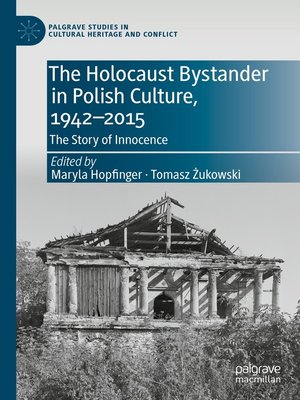The Holocaust Bystander in Polish Culture, 1942-2015
ebook ∣ The Story of Innocence · Palgrave Studies in Cultural Heritage and Conflict
By Maryla Hopfinger

Sign up to save your library
With an OverDrive account, you can save your favorite libraries for at-a-glance information about availability. Find out more about OverDrive accounts.
Find this title in Libby, the library reading app by OverDrive.



Search for a digital library with this title
Title found at these libraries:
| Library Name | Distance |
|---|---|
| Loading... |
This book concerns building an idealized image of the society in which the Holocaust occurred. It inspects the category of the bystander (in Polish culture closely related to the witness), since the war recognized as the axis of self-presentation and majority politics of memory. The category is of performative character since it defines the roles of event participants, assumes passivity of the non-Jewish environment, and alienates the exterminated, thus making it impossible to speak about the bystanders' violence at the border between the ghetto and the 'Aryan' side. Bystanders were neither passive nor distanced; rather, they participated and played important roles in Nazi plans. Starting with the war, the authors analyze the functions of this category in the Polish discourse of memory through following its changing forms and showing links with social practices organizing the collective memory. Despite being often critiqued, this point of dispute about Polish memory rarely belongs to mainstream culture. It also blocks the memory of Polish violence against Jews. The book is intended for students and researchers interested in memory studies, the history of the Holocaust, the memory of genocide, and the war and postwar cultures of Poland and Eastern Europe.







